A New Puppy: What to Expect
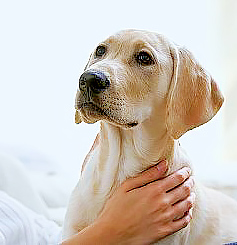
When you bring a new puppy into your home, it’s a time of great excitement for everyone involved: you, your kids, your neighbors, and even the dog. Here’s our guide on what to expect and how to handle the transition without losing your mind.
Feeding
By the time you bring your puppy home, he or she will most likely be fully weaned. You can start feeding puppy food immediately. If you bought your dog from a breeder, ask what type of food they were feeding your puppy, and continue that brand at least in the near term. Shelters often feed whatever is donated, usually all mixed together, so continuity is not quite so important.
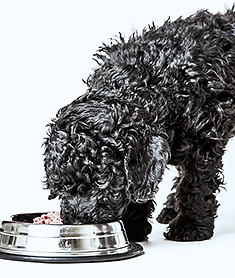
Just as with human babies, puppies require more frequent feedings than adult dogs. The general recommendation is for three meals until approximately six months of age, then switch to two meals, approximately twelve hours apart. Feed puppy food until the dog reaches one year of age. The back of the puppy food bag will tell you how much to feed your dog, according to his or her expected adult size.
As your dog reaches maturity, you can use Dog Food Advisor’s dog food calculator http://www.dogfoodadvisor.com/dog-feeding-tips/dog-food-calculator/ to determine how much to feed. A good general rule is that a medium-sized dog will require one cup of food twice each day. Bigger dogs get more; smaller dogs get less. Adjust as needed to keep your dog at an optimal weight where he or she has a waistline, and the ribs are close enough to the surface that you can feel them when you pet your dog.

House Training
If you are not willing to have your floors watered and fertilized on a regular basis, you should not bring a puppy into your home. Accidents will happen, and you cannot punish your dog for being a baby. Dogs are not naturally drawn to leave their waste in a particular spot like cats do. They simply leave their presents wherever they happen to be when the urge strikes.
However, there are things you can do to encourage your dog to figure out house training sooner rather than later. You should expect that your puppy will need to go outside about every hour to hour-and-a-half. The best way to house train a dog is to simply take him or her outside before the urge to go strikes. With luck, the dog will make good use of his or her time outdoors, and you can praise the animal as if going to the bathroom were the most important thing in the world.
Dogs like to please you, so they will eventually learn that their going outside before defecating or urinating makes you very, very happy. When your dog makes a mistake, simply say “no!” in a firm voice and take him or her outside immediately after the mistake. If you don’t observe the lapse in training, it’s likely too late to try to impress upon your dog that a mistake has been made. The dog will have no idea what you’re upset about. Simply clean it up, and move on.
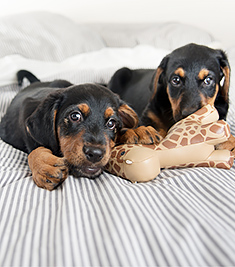
Teething
As anyone who has ever raised a baby will tell you, bringing in new teeth is hard, painful work. Gnawing on something hard seems to help the teeth poke through the gums. Don’t expect your dog to know the difference between a teething biscuit and your Louis XIV chair leg. To them, anything chewable is simply a means to an end.
The best defense during teething is a good offense. Put away your shoes in an area where the dog cannot get to them. Tie up lamp cords, drapery pulls, and other things that might look like a chew toy to your dog. Provide the dog with a washcloth that has been dampened and placed in the freezer. The icy cold will feel good on their sore gums and may entice them to chew on the rag rather than on other, room-temperature items.
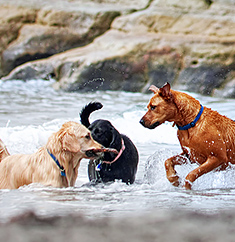
Know your breed
If you know a bit about your dog’s heritage, it goes a long way toward providing alignment between your expectations and the reality of having a new puppy in the house. Some breeds are known for having long puppyhoods. Most dogs begin to mature between the ages of 18 months and two years. Other breeds may take as long as three years before sanity begins to sink in.
Some breeds bark extraordinarily loudly; others howl instead of barking. Some like to jump while others are content to keep all four paws on the ground. Grooming requirements vary drastically. Every breed has its own foibles, and every dog within that breed is, to some extent, an individual.
One of the biggest reasons given for relinquishing dogs to shelters is that the family simply didn’t know what to expect. Dogs grow at an alarmingly fast rate, and if you were expecting your puppy to stay little forever, that can be a little disconcerting. Take the time to develop some realistic expectations before you bring a dog into your home. If you’re not prepared for the work and the mess associated with a puppy, consider getting a fish instead.
Remember: the reason God made puppies so cute is that we need a reminder that they’re lovable when they are chewing our shoes and peeing on our Oriental rugs. Otherwise, the species would never have survived. Before you make a commitment to bring an animal into your home who is likely to be your companion for the next 10 – 15 years, be sure you are up for the challenge
Find the breed that's best for you at our breed slector and breed guides.
Doggies Den: Latest Articles
 Homemade Thanksgiving Treats for Your Dog
Homemade Thanksgiving Treats for Your Dog
NUTRITION We all want to include our dogs in our holiday celebrations, but hopefully, you're aware that sharing table scraps with your dog isn't always the best idea.
 Keeping Your Dog Safe during the Summer Months
Keeping Your Dog Safe during the Summer Months
HEALTH Summer is coming on fast, so it’s time to plan how you will keep your dog safe and healthy through the lazy, carefree, warm days.
 Vaccination Time Again-Keeping Your Puppy Healthy
Vaccination Time Again-Keeping Your Puppy Healthy
DOG HEALTH So you have your new puppy picked out. There are quite a few shots, treatments and examinations that will keep the newest member of your family healthy.
 Canine Thanksgiving Feast
Canine Thanksgiving Feast
NUTRITION With the wide variety of food at Thanksgiving dinner, chances are you'll want to give your dog something special, too. If you're contemplating what to feed your dog for the holiday, here is a guide to a great Canine Thanksgiving Feast.
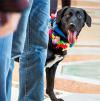 Dog Walking Tips Every Owner Should Know
Dog Walking Tips Every Owner Should Know
DOG FUN Walking your dog is not only crucial to keeping him healthy and happy, it strengthens the bond between your canine friend and his caregiver. There are a lot of obstacles out there. Don’t forget these simple tips to keep your walk fun and safe in the outside world.
 The Benefits of Physiotherapy for your Dog
The Benefits of Physiotherapy for your Dog
HEALTH The same techniques that physiotherapists use to treat a variety of injuries and conditions in humans have been adapted to suit animals with great success. Family pets, show dogs, and working dogs can all benefit greatly from physiotherapy. Dogs whose activities involve a lot of agility are especially susceptible to the types of problems that physiotherapy can address.
 The Decision- Adding a Dog to Your Family
The Decision- Adding a Dog to Your Family
FIRST TIME OWNERSBringing a dog into your family is a decision where many people don’t realize it’s magnitude until after they have the dog. There are a number of things that you need to research before you decide to purchase a dog, and it starts right in your own home.
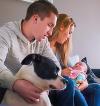 Bringing Your Dog Into Your New Baby's Life
Bringing Your Dog Into Your New Baby's Life
HEALTH Many believe that a dog and a new baby cannot happily coexist, so therefore the dog has to go. This is not necessarily the case.  A new baby does not mean you have to abandon your dog.

Doggies Den:
Most Popular Articles
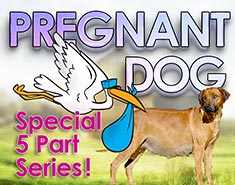
Dog Pregnancy Symptoms
HEALTHIf you suspect your dog might be pregnant, check out part one in this series on pregnant dogs, where we cover pregnant dog symptoms.
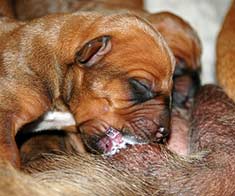
Dog Birth
HEALTHIn the third article of our dog pregnancy series, we look at the wonderful, but messy, process of bringing newborn puppies into the world.
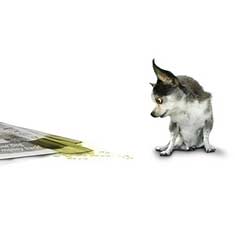
Indoor Dog Potties
DOG PRODUCTSIt's been a long day at work. You were so busy, you didn't even take time to eat a sandwich, let alone run home to let your dog out. You're on your way home, knowing the poor dog is crossing his or her legs by now, when your car breaks down, delaying you even further. Can't somebody make this easier?
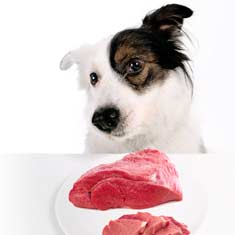
Your Dog’s Digestive System
PHYSIOLOGYEver wonder why your dog eats so fast? Or why he eats gross things? Or why he gets sick to his stomach? Or why his waste stinks so bad? Some of these things are normal, some are not.

Canine Respiratory System
BREATHINGThe basic function of your dog's respiratory system is to bring oxygen in to and remove carbon dioxide from the body. Knowing the symptoms of respiratory diseases can help you help your stay healthy.
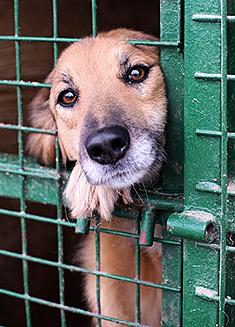
Shelter Dog Adoption Tips for Success
ADOPTION Are you intimidated by the prospect of "rescuing" a dog from a shelter? One reason that you may be wary of adopting a dog from a shelter is not knowing how to choose. Adopting a dog from a shelter can be a rewarding process, if you're prepared to do a reasonable amount of research.
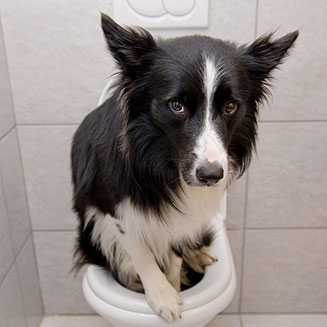
Canine Urinary Tract Infections
SYMPTOMS AND TREATMENTDoes your dog seem to be having trouble relieving his or her bladder? Learn how to recognize the signs of urinary tract infections and how to treat them before they spread.
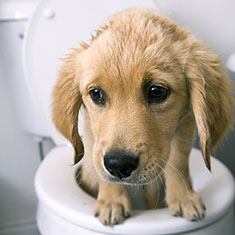
What to do for Dog Diarrhea
SYMPTOMS AND REMEDIESIf you have dogs in your house for any length of time, you have likely experienced at least one bout of dog diarrhea. Beyond the pain in the tuckus involved in cleaning up the mess, you should know what causes diarrhea, and when it's important to see the vet.

What to do for a Dog Bite
DOG BEHAVIOR Getting bitten by a dog can be scary, and you may be tempted to run around in circles for a while, trying to figure out what to do. Here's our guide to help you manage the situation.
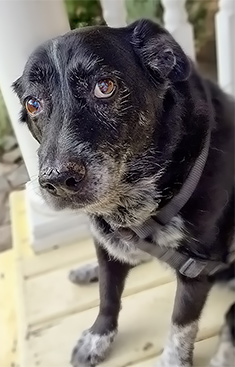
Top Ten Tips for Living with a Senior Dog
DOG HEALTH Bringing home a new puppy is so exciting, but it doesn’t take all that long for your exuberant puppy to grow into a senior dog who may have special needs. Here are the doggies.com top ten tips for taking care of your companion who has been with you through so much.
